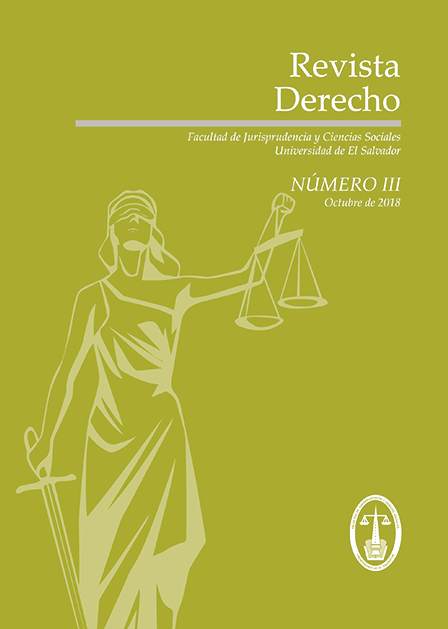An approach to the processes of secondary victimization and social co-responsibility
Keywords:
Victimology, Violence, DevictimizationAbstract
The Victimology has gone through different historical moments and it took greater importance in the last decades, passing from focus a study to the victim only as part of a dynamic crime to study processes as well factors influencing the victimization. These experiential processes of people suffering damage related to different elements that allow its overcoming and restructuring (what is known as the process of devictimization). The relevance acquired by the victimological study in social dynamics has to do with the relationship between the concept of violence and the environments that foster it. This affects the new ways of building the process of victimization and even in revictimizations by the members of the society in which the victim is immersed. This dynamic is permeated by multiple victimizations to a person, which make it difficult to overcome the initial harmful event, it has been seen the combination of successive situations that continue to impair the quality of life of the victim. Therefore, it is important to mention what are these processes, their relationship with violence and how social co-responsibility is a part that must be developed in current societies.
Downloads
References
Iñaki Rivera Beiras. Política criminal y sistema penal. Viejas y nuevas racionalidades punitivas. (Barcelona: Anthropos, 2011), 55.
Luis Rodríguez Manzanera. Victimología: Estudio de la víctima. Séptima edición. (México: Porrúa, 2002), 18.
José María Mardones, et al., La ética ante las víctimas (Barcelona: Anthropos, 2003), 12.
Ezzat A. Fattah, “Victimología: pasado, presente y futuro”, Traducción Maria del Mar Daza Bonachela, en Revista electrónica de ciencia pena y criminología, No.(2014): 1-33, paráfrasis.
Enrique Baca Baldomero, Enrique Echeburría Odriozola y Josep Tamarit Sumalla; Coordinadores. Manual de victimología, Sociedad Científica Española de Victimología (SEV). (Valencia: Tirant lo Blanch, 2006), 17.
Hilda Marchiori, Criminología: La víctima del delito (México: D.F, Porrúa, 2003), 2.
Luis Rodríguez Manzanera, Criminología Clínica. Quinta edición (México: Porrúa, 2012), 157.
Hilda Marchiori, Psicología Criminal (México: D.F, Porrúa, 2009), 4.
Ulrich Beck, La sociedad del riesgo: hacia una nueva modernidad, Traducción Jorge Navarro (Barcelona: Paidós, 1998), 86-91.
Luis Seguí, Sobre la responsabilidad criminal. Psicoanálisis y Criminología (Madrid: Fondo de Cultura Económica, 2012), 114
David Huertas Sánchez, Violencia: La gran amenaza (Madrid: Alianza Editorial, 2007), 16.
Ignacio Martín-Baro, Acción e ideología: Psicología social desde Centroamérica. Décima reimpresión, Colección Textos Universitarios Serie Psicología Volumen I (Universidad Centroamericana José Simeón Cañas, El Salvador, UCA Editores, 2004), 367.
Raúl Osvaldo Torre, La víctima del crimen (Ciudadela: Dosyuna Ediciones Argentinas, 2012), 139.
Hilda Marchiori, Coordinadora. Serie victimología 2, (Córdoba: Encuentro Grupo Editor, 2006), 192.
Hilda Marchiori, Criminología: La víctima del delito (México: D.F, Porrúa, 2003), 157.
Downloads
Published
Issue
Section
License
Copyright (c) 2018 Revista Derecho

This work is licensed under a Creative Commons Attribution-NonCommercial 4.0 International License.
The authors transfer the copyright rights in favor of the Faculty of Jurisprudence and Social Sciences of the University of El Salvador (through Aequus Editorial) to include their writing in Revista Derecho.








